Researchers from our Optoelectronics Laboratory at PUCV, Optolab, participated in a conference addressing optics, signal processing, and machine learning topics.
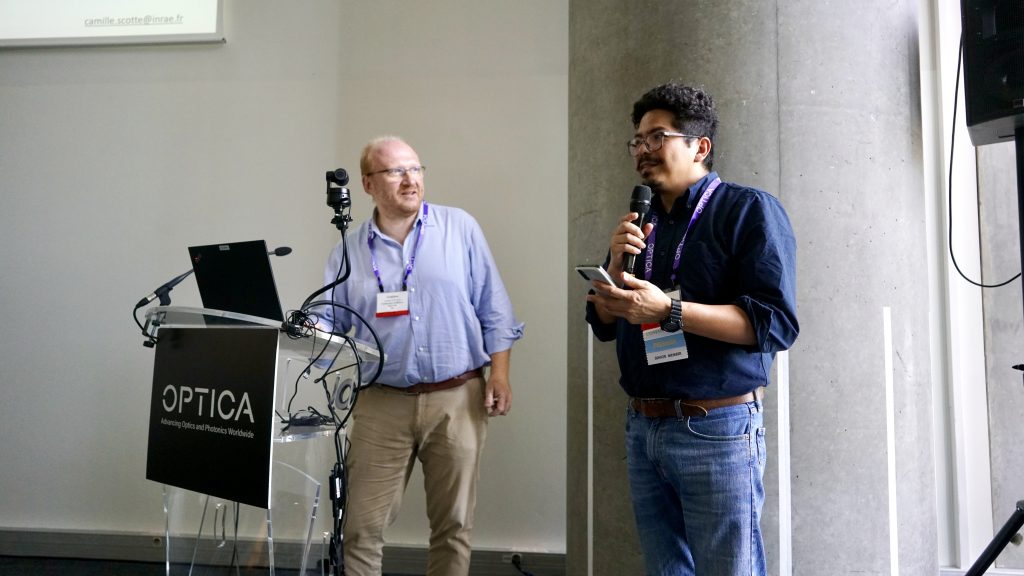
From July 15 to 19, the Optica Imaging Congress, a conference focusing on optical topics, took place in Toulouse, France this year.
This event is organized by Optica, a society dedicated to advancing the generation, application, and dissemination of knowledge in advanced optics and photonics worldwide. The association promotes the publication of articles and organizes meetings for scientists, engineers, professionals, and students in the field of light studies.
Professor Esteban Vera, director of the laboratory and professor at the PUCV School of Electrical Engineering, was a part of the conference, serving as the moderator for the session Advances in Compressed Sensing, where Dr. Felipe Guzmán, a graduate from the first cohort of the PUCV Electrical Engineering PhD program, presented his research Coded Aperture Strategies for High-Speed Video Sensing, which earned him his doctoral degree.
“This is my fourth time presenting at the conference, this time I was invited and had 30 minutes to present. It felt short considering I used the same presentation as my thesis defense, which lasted 15 minutes longer. For me, the most interesting parts are always the posters, and indeed, there were several interesting works”, said Dr. Guzmán.
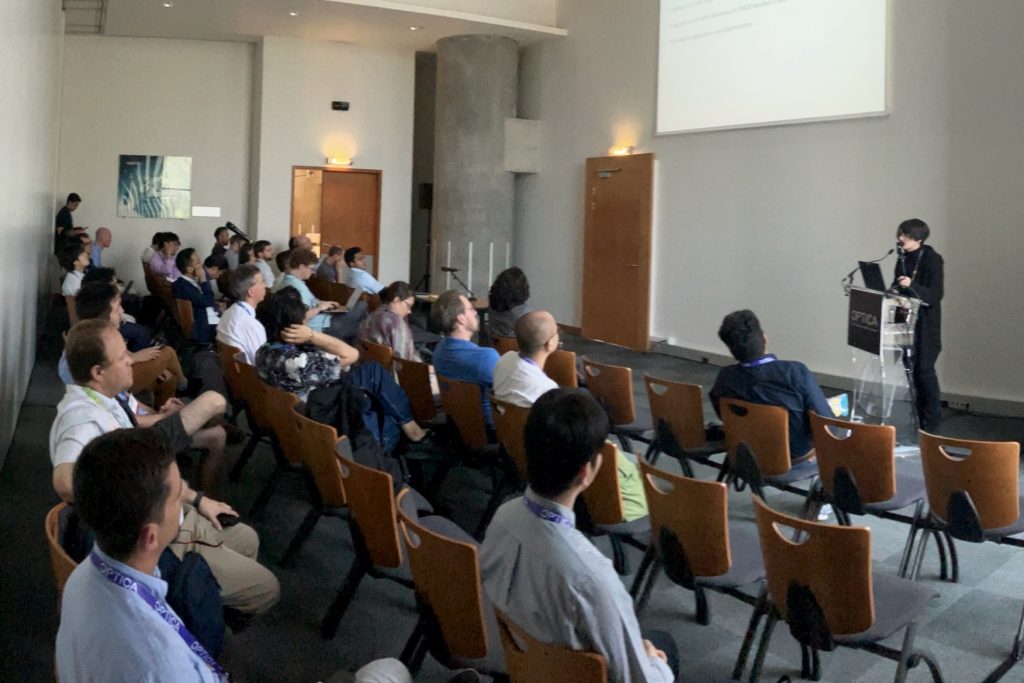
His colleagues from the lab, who also attended the conference, mentioned that his presentation “went really well and he was even congratulated for the excellent quality and clarity of his explanations.”
Two other members of Optolab also participated in the event: Dr. Nelson Díaz, a postdoctoral researcher, and Alejandro Alvarado, a doctoral student from the PUCV School of Electrical Engineering, who presented their recent work at this major Optica meeting.
Dr. Díaz presented Binary Coded Aperture Design by Sphere Packing in Compressive Ultrafast Photography, attracting significant attention on the last day of the conference, with several prominent researchers approaching him to learn more about his work.
Meanwhile, Alejandro presented his research Multiplexed Multispectral Filter Array by 3D Sphere Packing Design in a poster session, receiving visits from researchers who were already familiar with the article. He commented on his experience, saying that “the conference was enjoyable. There were more people than in previous years, and we had a lot of interactions. I met new people and also some who had read our papers, coming to discuss those topics”.
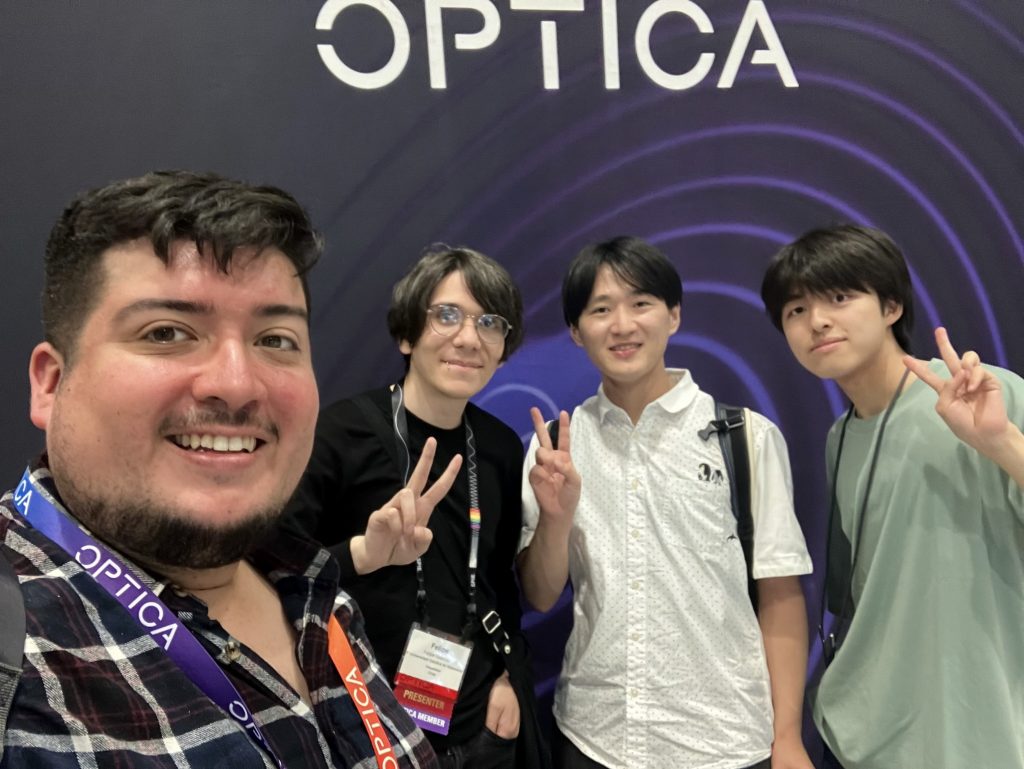
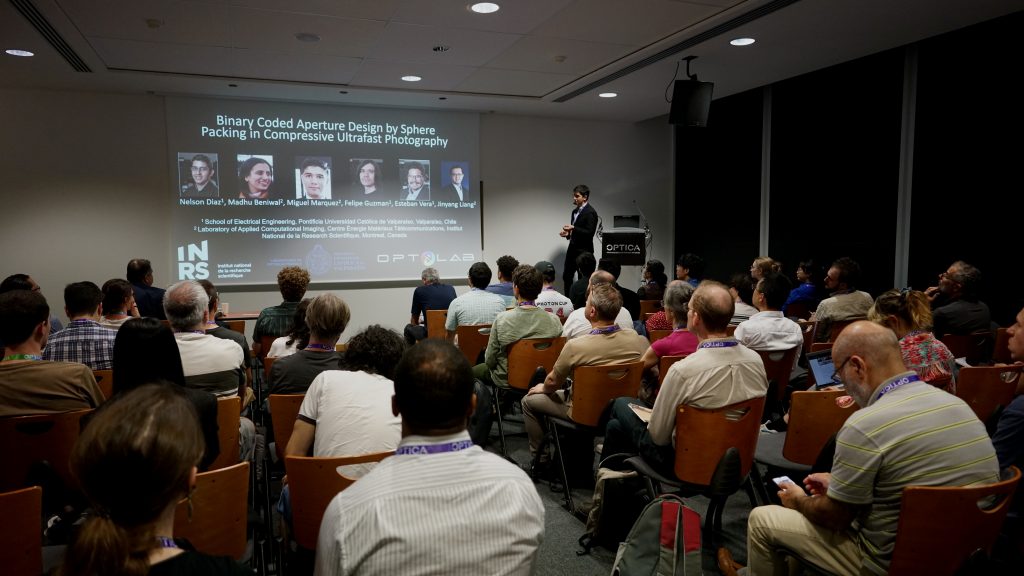
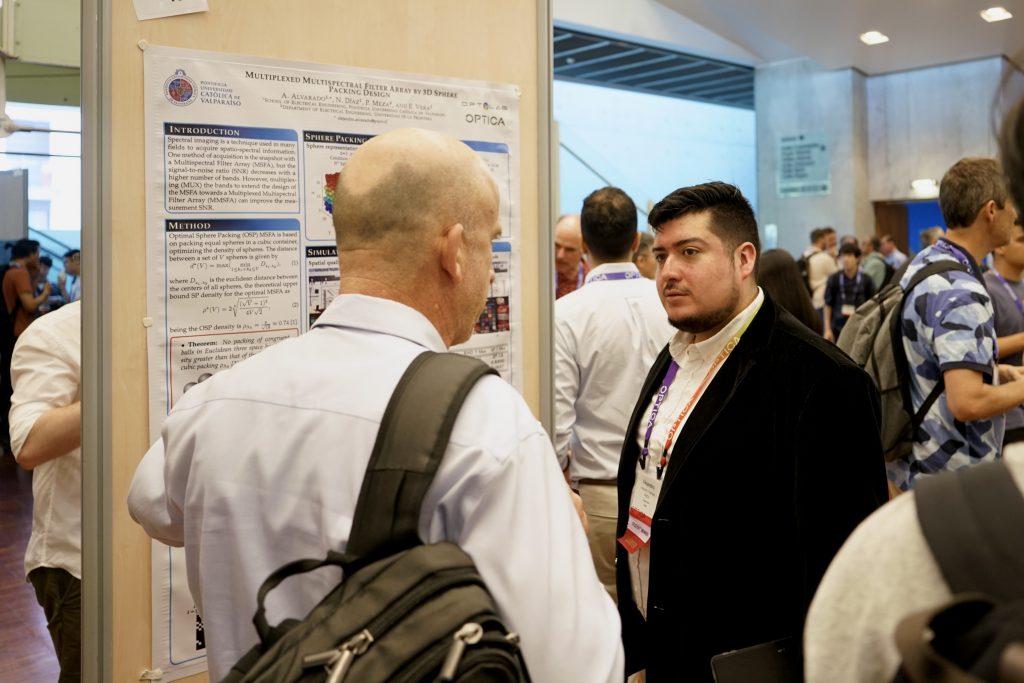
According to the members of Optolab, it was a great opportunity to reconnect with key figures and researchers who contribute to the areas they are developing, allowing for discussions and feedback on their presentations and work, as well as establishing future collaboration agreements.
